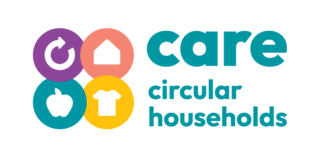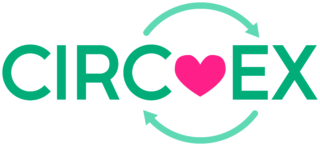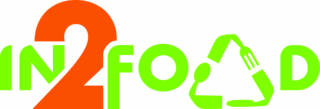Projects

CARE: Circular consumption Activities to tRansform households toward material Efficiency (2024–2027)
CARE aims to empower consumer-citizens in European households in the transition to a circular economy (CE). The objective of CARE is to transform a total of 100 households in five European countries (Finland, Norway, Sweden, Germany and Estonia) to circular model households.
To achieve its aim, CARE will further develop, test, and validate two pilots related to two critical material flows: food and clothing. They both have high potential for circularity at the household level. The CARE pilots will be implemented in five regions – both urban and rural – that are part of the Circular Cities and Regions Initiative (CCRI): Tampere, Asker, Gothenburg, Berling, and Lääne-Harju. The pilots are based on the practice-theoretical approach, which goes beyond state-of-the-art by focusing on holistic, social, and material aspects of everyday life instead of individualistic and awareness-raising interventions. The pilots will contain both customized, inclusive, and cost-free circular advisory services as well as food and clothing related interventions that target changes in consumption practices. Impact assessment is a key part of the project that includes improvement in material efficiency, living conditions, and sustainable wellbeing. The effectiveness of the pilots for reducing environmental impacts will be calculated using life cycle assessment.
Funding
 Circular Economy Experience (CIRCEX) (2023–2027)
Circular Economy Experience (CIRCEX) (2023–2027)
There is an urgent need for societies to transition into a sustainable circular economy (CE). However, the success of this transition depends on changes in human stakeholders’ practices. The CIRCEX project studies the emergence and role of human experience in the CE, which is argued to be crucial for people’s engagement in CE practices like reducing, reusing and recycling. CIRCEX brings together research on CE, marketing, and design to study circular economy experiences (CEEX) in the context of CE ecosystems involving plastics. The project breaks new ground by conceptualizing CEEX, unpacking how human stakeholders experience translates into action, and creating a framework for CEEX design. As a whole, CIRCEX contributes to science by developing the role of experience research in advancing societal wellbeing and sustainability.
Funding
Coordinating organisation
Ended:
LOWINFOOD – Multi-actor design of low-waste food value chains through the demonstration of innovative solutions to reduce food loss and waste (2020–2025)
Objective for the project is to co-design, together with actors of the food chain, low-waste value chains by supporting the demonstration of a portfolio of innovations in the fruits & vegetables, bakery products and fish value chains, as well as in a-home and out-of-home consumption.
This four-year project is funded by European Union’s Horizon 2020 programme. There are 27 partners involved from 12 European Countries. The project is led by assistant professor Clara Cicatiello from University of Tuscia, Italy.
In this project, researchers from the Wastebusters group (TAU) will examine how waste of bakery products can be reduced through co-operation between bakeries and retailers, and how household food waste can be reduced by using a mobile application.
Funding source
This project receives funding from the European Union’s Horizon 2020 research and innovation programme under grant agreement 101000439.
IN2FOOD: Resolving a Societal Challenge: Interdisciplinary Approach Towards Fostering Collaborative Innovation in Food Waste Management (2021–2024)
As a joint effort between the European and Indonesian partners, the project will create and develop interdisciplinary courses, a research center and a master’s program curriculum regarding food waste management for the Indonesian partner universities. The researchers of Wastebusters research group are contributing their expertise to the project in the form of scientific knowledge about food waste management. The project offers the research group significant international level societal impact, since Indonesia is one of the largest food waste countries in the world.
The project is funded by EU Erasmus+ Capacity Building for Higher Education -program. The project consortium consists of eight universities: three from the EU and five from Indonesia.
Funding source
This project receives funding from European Union’s Erasmus+ Capacity Building for Higher Education (CBHE) programme.
Coordinating organisation
Waste Matters: Change agents’ engagement in circular economy transformation (2020–2022)
Funded by the Foundation for Economic Education (Finland), the project (1.8.2020-31.7.2023) aims to analyse how various change agents engage in transformation toward Circular Economy (CE) business ecosystems.
The research questions of the project include:
- How can change agents encourage the diffusion of sustainable waste related practices?
- What kind of framing efforts can be identified when turning waste into value?
- How are sustainable value propositions (SVPs) created for various stakeholders?
- How can digital devices (e.g. smartphone apps or digital platforms) facilitate the shift towards CE ecosystems?
In the project, in-depth understanding of consumers and other change agents in circular economy will be created. These change agents will be examined in a wider institutional context. We study the various business opportunities created by circular economy especially from the point of view of change agents.
Impact
Most important publications:
Mesiranta, N., Närvänen, E., Luukkonen, R., & Kaivonen, I. (2021). Social media influencers educating consumers on sustainable fashion in NA – Advances in Consumer Research Volume 49, eds. Tonya Williams Bradford, Anat Keinan, and Matthew Matthew Thomson, Duluth, MN : Association for Consumer Research, Pages: 87-90.
Mesiranta, N., Närvänen, E., & Mattila, M. (2022). Framings of food waste: How food system stakeholders are responsibilized in public policy debate. Journal of Public Policy & Marketing 41 (2), 144-161. Full text
Närvänen, E., Mattila, M., Keränen, J., Kaivonen, I. & Nurminen, M. (2022). Framing value propositions in the food waste business: A sociocultural approach. Industrial Marketing Management, 105, 211-222. Full text
Närvänen, E., Mattila, M. & Mesiranta, N. (2021). Institutional work in food waste reduction: Start-ups’ role in moving towards a circular economy. Industrial Marketing Management, 91, 605–616. Full text


